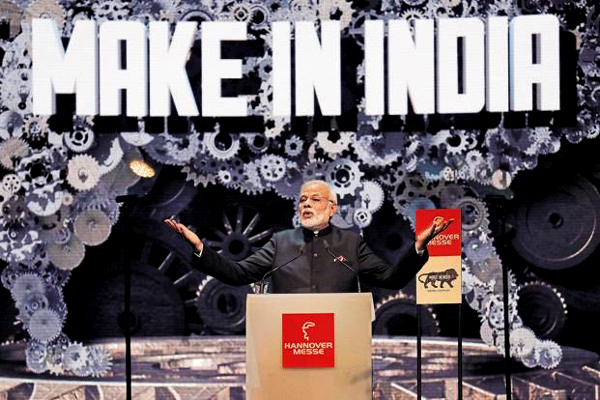NEW DELHI: The commerce ministry under outgoing trade minister Suresh Prabhu has come up with a World Trade Organization (WTO)-compliant export promotion scheme along with a production based support scheme to boost Make In India as part of its 100-day action plan ahead of prime minister-designate Narendra Modi’s swearing in ceremony on Thursday.
The new export promotion scheme may replace the existing Merchandise Export from India Scheme (MEIS) as the US has challenged India’s existing export subsidy schemes at the WTO on the grounds of its incompatibility with multilateral rules.
“The new scheme will be on the nature of refund of all un-rebated central and state taxes and levies scheme on inputs consumed in exports in all sectors,” a commerce ministry official said on condition of anonymity.
The major un-rebated levies are state value added tax/ central excise duty on fuel used in transportation, captive power and farm sector, mandi tax, duty on electricity, stamp duty on export documents, purchases from unregistered dealers, embedded central goods and services tax (CGST) and compensation cess, coal used in production of electricity.
The production-based support scheme will also aid Indian exporters in the absence of an export subsidy scheme and promote Make In India. “Promotion of certain high potential sectors like electronics and telecom, hi-tech engineering products, medical devices, pharmaceuticals, technical textiles is very essential. We are consulting the stakeholders to propose a production-based government assistance. We will finalize the architecture of the scheme very soon,” the official said.
Under the special and differential provisions of the WTO’s Agreement on subsidies and countervailing measures, so-called least-developed countries and developing countries whose gross national income (GNI) per capita is below $1,000 a year at the 1990 exchange rate are allowed to provide export incentives to any sector that has a share below 3.25% in global exports.
However, they need to stop all export incentives if per capita GNI crosses $1,000 for three straight years.
According to a notification by the committee on subsidies and countervailing measures in 2017, India’s per capita GNI crossed $1,000 for three consecutive years in 2015. India has argued that as countries that were already above $1,000 were given eight years to adjust to the new regime, it should also get similar time to change its exports policy.
The commerce department has also started work on launching a new five-year foreign trade policy on 1 September as the term of the current policy is set to end on 31 March 2020.
“The thrust of the new foreign trade policy would be to boost exports of goods and services which are bought in large values by the world and where India has strong competitiveness. The launch of the new foreign trade policy will also include the state of art information technology (IT) systems with end-to-end integration with all agencies,” the official said.
Source: LM
Image Courtesy:LM
You may also like
-
Trade Connect E-platform For Exports Is Single Window, Fast, Accessible And Transformational: Shri Piyush Goyal
-
Dot Simplifies Approval Processes For Telecom Licenses And Wireless Equipment
-
Coal Production and Supply Trends on Positive Trajectory
-
Union Minister To Release Booklets On Promotion Of Indigenous Species & Conservation Of States Fishes
-
2nd India-Japan Finance Dialogue held in Tokyo on 6th September, 2024
